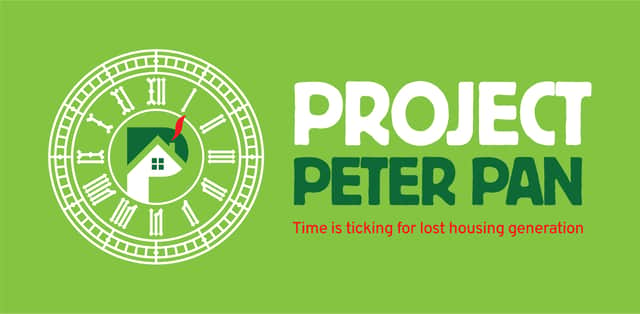All the facts and figures behind the financial trap of Sunderland's Peter Pan generation
and live on Freeview channel 276
Young people from Sunderland have been speaking to the Echo about the difficulties for their generation to get on the property ladder and gaining the independence of a financial foothold in modern society.
Rising interest rates and prohibitive mortgage costs have left many people in their 20s and early 30s still living at home or facing the prospect of renting and paying someone else's mortgage.
Advertisement
Hide AdAdvertisement
Hide AdDubbed the Peter Pan generation, many of these people are graduates, burdened with student loan debts and starting salaries which don't match the current inflated cost of living.


It's undoubtedly a national problem, but just how bad is the situation for young people here in Sunderland?
The biggest expense for people of all ages remains purchasing a property and the most recent census data showed 58.1% of the city's residents were paying a mortgage, compared to 59.8% in 2011.
The census also showed a significant proportion of the city's residents were still renting, with 14.8% of residents living in private rented accommodation and 26.6% in rented social accommodation.
Advertisement
Hide AdAdvertisement
Hide AdThis is significantly more than the 17% of people nationally living in rented social accommodation.


Nationally, 65% of people own their own properties, suggesting more people in Sunderland of all ages are struggling to get a mortgage.
When it comes to buying a house or flat, according to Right Move, the average property price in Sunderland over the last year comes in at £163,333, way below the January 2024 national average of £359,748.
Less than half the national average, this obviously puts young people at an advantage when it comes to getting that first home, but this is to some extent offset by below average annual salaries in the city.
Advertisement
Hide AdAdvertisement
Hide AdAccording to Totaljobs.com the current average salary for advertised jobs in Sunderland is £22,492, significantly lower than the average UK annual salary of £35,464.
Using the Halifax mortgage calculator tool, to purchase a property at the average house price of £163,333 a first time buyer would need a minimum deposit of £8,167.
Taken out over 25 years, with a standard five year current fixed rate of 5.1%, they would be paying £916 per month.
An annual salary of £22,492 would see a person bringing in £19,515 per year after tax. This works out at £1,626 per month meaning well over half of this income would be spent on mortgage repayments before any other bills or outgoings, which is highly likely to be unsustainable for most people on this salary.
Advertisement
Hide AdAdvertisement
Hide AdThis is before factoring in the average student loan debt for a young person in Sunderland looking to get on the property ladder is £45,000.
While Sunderland and the North East is one of the cheapest places to live in the country, starting and average salaries simply don't add up to the current cost of living, including getting on the property ladder.
Sunderland City Council accepts more needs to be done both locally and nationally to breakdown the barriers which are currently prohibiting the Peter Pan generation from getting that first home and gaining their independence.
A spokesperson said: "Sunderland City Council recognises that more and better housing is needed across Sunderland to meet the needs of all residents, and we are addressing this as part of our city plan.
Advertisement
Hide AdAdvertisement
Hide Ad"Over the coming years we will also be working with partners to build more affordable, low-carbon homes across the city.
"We also recognise that there is increasing affordability pressure within the private rented sector and we will continue to engage with private landlords on affordability concerns as well as increasing affordable and social housing provision across the city."
Comment Guidelines
National World encourages reader discussion on our stories. User feedback, insights and back-and-forth exchanges add a rich layer of context to reporting. Please review our Community Guidelines before commenting.